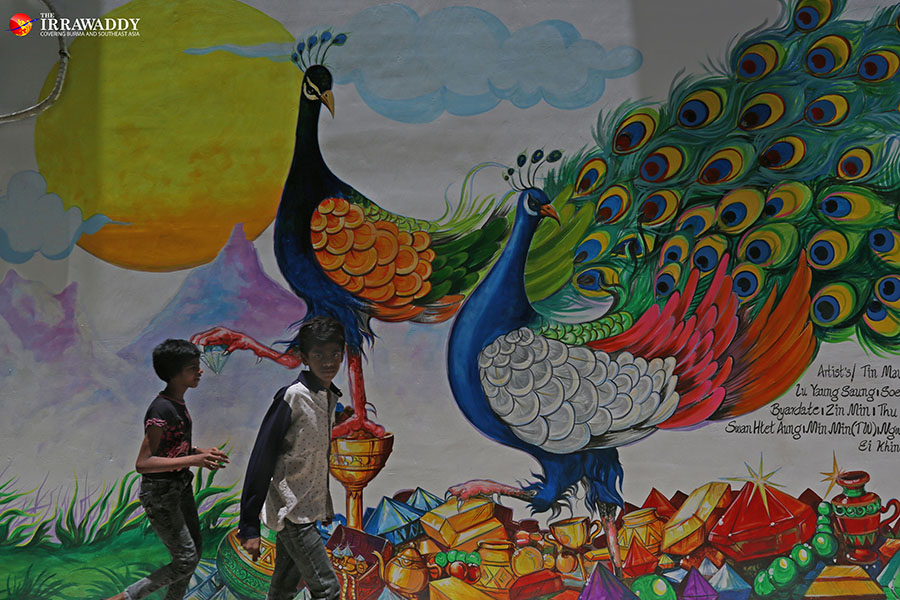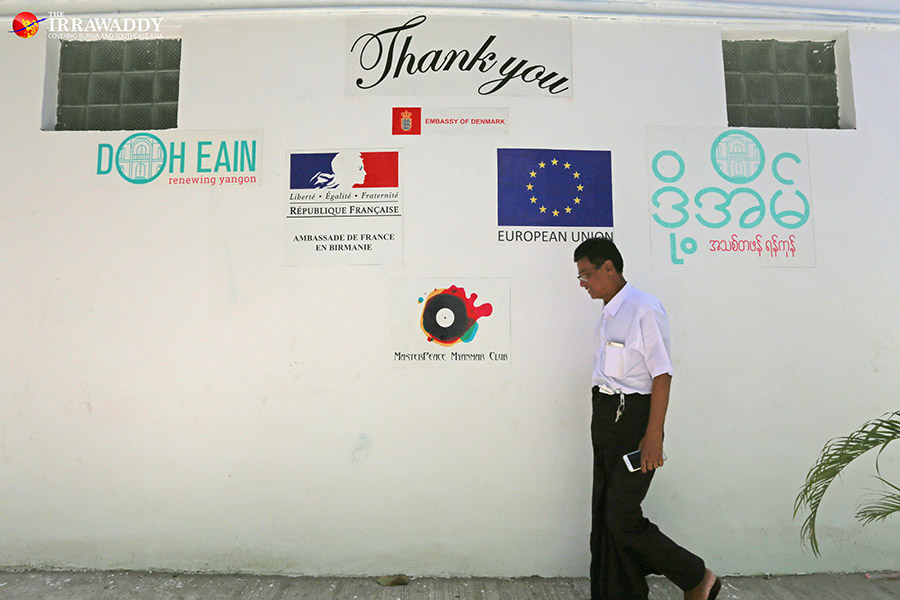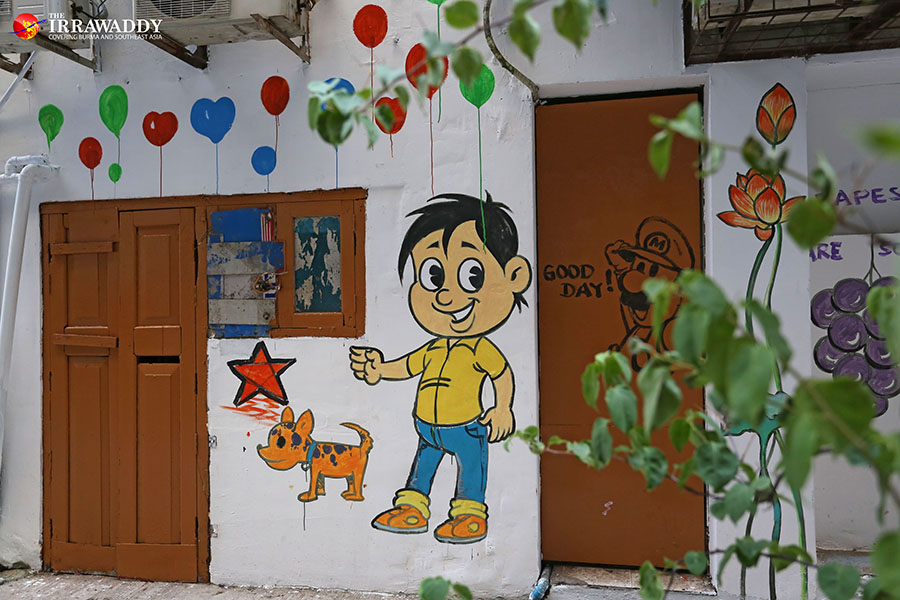29 May 2018 YANGON — Doh Eain, a social enterprise organization, is transforming alleyways into gardens and children’s playgrounds, demonstrating the potential of under-utilized urban spaces to be repurposed to facilitate recreation and social cohesion.
“In a world of rapid urbanization, we want to make sure cities are beautiful, livable, inclusive and sustainable. Doh Eain specializes in restoring heritage buildings, creating good quality public space, and organizing city events and experiences,” said Kyaw Sithu, project and communications officer at Doe Eain.
He added that, “We do this through bespoke combinations of our five core capabilities: community mapping, design, finance, building and space management, and programming.”
Its first Alley Garden project in Yangon was completed on 27th Street in July 2016. Since then the team has completed another four such projects downtown: 39th Street (Seikkanthar Street) in June 2017; between 31st and 32nd streets in July 2017; between 31st and Bosunpat streets in April 2018; and between 29th and Shwebonthar streets at the beginning of May 2018.
Discussing the original idea for the project, Kyaw Sithu said, “Yangon has many kilometers of back alleys, but at present these are solely used as rubbish dumps, attracting pests. We aim to demonstrate how Yangon’s many alleyways could be used as clean and healthy recreational spaces featuring gardens, street art and children’s playgrounds, incorporating recycling and composting techniques.”
Their vision is to upgrade Myanmar’s cities in terms of beauty, livability, inclusiveness and sustainability, so that they are enjoyed by residents who actively take part in developing the cities’ rich and diverse legacies.
Each alley garden has its own theme, such as a photo gallery, street-art theme, or skate park.

The group plans to launch two new Alley Gardens by mid-June, one in the upper block of 35th-Mahabandoola Park Street and the other between 41st and 42nd streets.
So far, Doh Eain has only worked with communities in downtown areas, but it has plans to expand its projects to other areas in Yangon, possibly after this rainy season, Kyaw Sithu said.
Residents and people in nearby neighborhoods, particularly children, enjoy the spaces, which give kids somewhere to play and adults a place to socialize, relax or read.
“For them, it is a massive transformation, as these alleyways in the past were not even enterable, filled with garbage, rats, flies and bad smells,” Kyaw Sithu said.
Transforming these areas into Alley Gardens had seen a reduction in the practice of people dumping garbage in the street, but some residents of upstairs apartments continue to do so, throwing trash and pouring dirty water into the Alley Gardens, he said.
“Downtown is a very diverse area in terms of its population; there are residents, tenants, shops, restaurants, businesses, hostels and religious buildings. We want the garbage-throwing problem to be eliminated 100% but it is important to note that it is quite a long process requiring the involvement of key stakeholders such as the YCDC, local government and communities,” Kyaw Sithu said.

He added that “It is important that communities take more responsibility and ownership in maintaining their environment regularly. We hope the neighborhood communities will help us.”
According to Kyaw Sithu, building community involvement is a public policy issue requiring intervention by the city authorities with well-defined and effective goals. Local residents get involved in cleaning up the Alley Gardens at least once and sometimes twice a week he said.
The first Alley Garden, on 27th Street, had temporarily closed, Kyaw Sithu said. “That Alley Garden area was too small; it was behind our old office. Now, we have moved our office and haven’t been able to check up on that street. So we have closed it for a while but we will make a new plan after this rainy season.”
U Hla Moe, a resident of 31st Street, said, “I really appreciate the idea and this Alley Garden is really useful for kids. In the downtown area, there are no skate parks or other places for skating, but kids can skate in the Alley Garden.”
“As you know, people don’t all think the same way. Some still throw garbage into the garden; maybe sometimes it’s accidental. On the other hand, some take care of their rubbish and maintain the garden,” U Hla Moe said.

Doh Eain plans to conduct an evaluation in June in cooperation with municipal, parliamentary, local ward and community authorities.
“We intend to upgrade a minimum of 30 properties or spaces per year following four principles: locally led and user-centered; asset-based and creative; environmentally friendly and sustainable; and market driven,” Kyaw Sithu said.
“In addition to heritage restoration and Alley Garden projects, we will focus on upgrading streets, playgrounds and public spaces; creating safe and empowering spaces for girls and women; and organizing cultural events and festivals,” he said.
With collaboration from local governments, municipalities and communities, Doh Eain believes it can make cities beautiful, livable, inclusive and sustainable, promoting citizen participation, and preserving their rich and diverse legacies.
Doh Eain is a multi-discipline urban design firm based in Yangon. It is registered as a company and as a non-profit. It relies on and applies a diversified set of financing methods, working with clients, loans and grants for revenue generating and non-revenue generating activities.

















